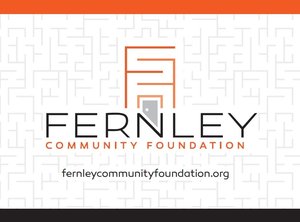Use holiday visit to assess loved one’s well-being

By Tara Alto, Administrator at Fernley Estates Senior Living and Memory Care
Barb had last visited her father over Thanksgiving weekend and he was moving about the house just fine. A month later, while visiting over Christmas, she noticed his world had shrunk considerably. What her father considered “essentials” — his mail, TV remote, newspapers, bottled water, checkbook, a basket of snacks — was within arm’s reach of his favorite armchair, where he spent most of the day. Getting up from his chair, she saw, had become challenging; his walking, unsteady.
Holidays are a time to celebrate and reconnect with family members, but for those who live long distance, like Barb, they’re also a time to check in and see how relatives are faring on their own. Acknowledging a decline in health, challenges with daily living activities and lack of socialization is the first step in keeping family members safe and living independently for as long as possible. In some cases, it may indicate it’s time to consider other living options.
Use the guidelines below to help assess how your loved one is doing.
Note physical changes
Are there changes in their physical appearance? Weight loss or gain could signal illness, depression or difficulty grocery shopping or cooking for themselves. Changes in mobility — trouble getting up from a chair, shuffling their feet while walking, furniture surfing (leaning on furniture to get around the house) or general unsteadiness — could indicate a physical or cognitive issue. Imbalance increases their risk of falling, which is a leading cause of injury among older adults.
How’s the condition of the home
Notice if there are piles of unopened mail, especially if the correspondence dates back more than few days. Unopened mail may indicate financial problems, cognitive decline, being overwhelmed or poor vision. Since older adults are targets for financial fraud, mail from creditors or charities may be a red flag that something is amiss. Are there rooms within the home that go unused indicating they now live in a single room as if on an island? Is there an unclean odor, piles of laundry that need washing, spoiled food in the fridge? An ordinarily tidy house now unkempt may suggest increasing difficulty keeping up with daily chores.
Do they have visitors?
Loneliness and social isolation can be harmful to a person’s health. Alleviating either one takes more than a brief daily mail delivery or Meals on Wheels visit. Do your loved ones receive regular visits from church volunteers, neighbors or friends? Do they get out of the house for socialization other than going to physician’s appointments?
Are plants and pets thriving?
Is the dog brushed and well-fed? Is the cat’s litterbox overflowing? Are the plants withering from lack of water or thriving from good care? The care of plants and animals generally reflects how they’re caring for themselves.
Is there meaningful face time?
Is your loved one recognizing and talking with family members? Can they hear well and participate in conversations? Are they repeating themselves, having trouble finding the words they’re trying to say, being defensive or acting like a different person? Cognitive challenges may indicate underlying health issues.
While you’re observing and making a note of changes, don’t forget to stop, sit, and remember why you’re visiting in the first place. Put your smartphone on silent and give your loved one your full attention. Ask questions and then listen to their answers, even if it takes them longer than usual to respond. As tempting as it might be to put items back to their proper place or throw away weeks’ worth of newspapers, don’t do it unless you ask first. Think about how you might feel if someone started cleaning up your personal space without asking.
Enjoy your holiday visit! But if you feel there’s been a change in your loved one’s health or ability to care for themselves safely, make time for an honest talk before you leave. Need some guidance? Visit the Area Agency on Aging (www.agingcare.com) or AARP for a helpful guide. You can also contact Fernley Estates at (775) 372-8625 for more information.
Tara Alto is the administrator at Fernley Estates Senior Living and Memory Care. For more information, visit http://www.fernleyestates.net or call (775) 372-8625.




